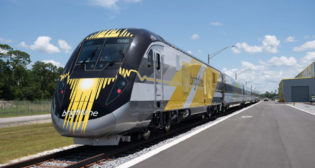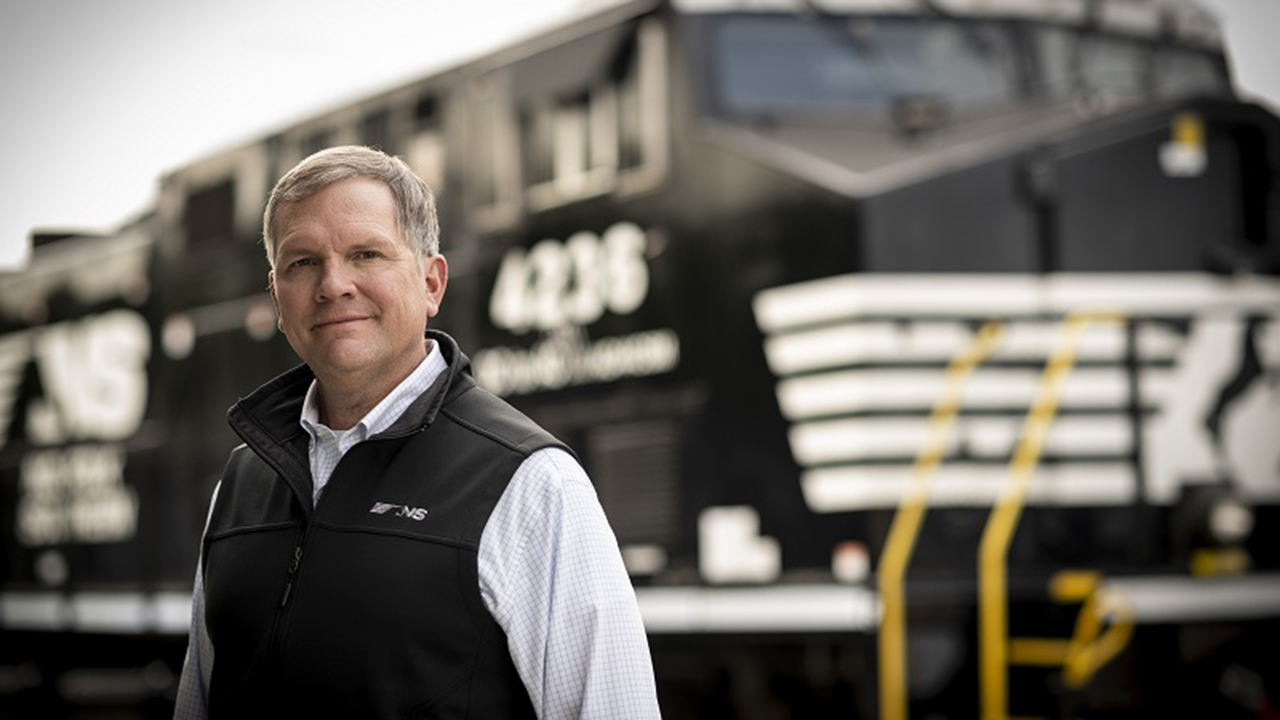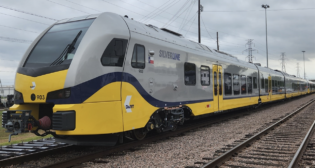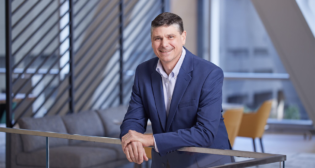
Rail Insights Conference Roundup
Written by David Nahass, Financial Editor
”Moving forward on building an industry-leading, safety-first operation requires everyone across our organization—from management to the craft employees who comprise the backbone of the company—to work together toward a common mission.” – Alan Shaw
FINANCIAL EDGE, RAILWAY AGE JULY 2022 ISSUE: At the 2023 iteration of the Rail Insights conference, hosted by Railway Age, broad scoping coverage of current and future rail industry related topics were addressed by an engaging roster of senior executive speakers. Here is a summary of the topics and conclusions from the presentations.
Alan Shaw, President and CEO of Norfolk Southern, addressed NS’s ongoing commitment to East Palestine following the March 2023 derailment. NS has committed more than $62 million to the community and continues rapid remediation efforts.
Shaw reaffirmed NS’s commitment to do whatever is necessary post-derailment. Shaw discussed customer-centric improvements to advance long term service and productivity initiatives. He highlighted improved hiring and investment positioning NS to benefit from a growing economy. Shaw noted the successful settlement with railroad unions on sick leave. He sees positive operational railroad alignment to address government-policy-driven manufacturing growth.
“A customer said, ‘I’ve never seen better alignment between marketing and operations on driving service improvements, driving growth, and driving productivity,’” Shaw noted. “And that is the essence of our strategic plan; a balanced approach and alignment of all 20,000 employees around service, productivity and growth. There is a better way forward for Norfolk Southern—a more balanced approach that leverages the unique strengths of our franchise. We’ve got a focus and a vision that really considers the long-term best interests of our customers, our employees, the communities we serve and our shareholders. When I became CEO of Norfolk Southern, we didn’t have enough people, candidly. We went on a hiring spree, and since I became CEO, we’ve added between 1,400 and 1,500 employees, many of which are high paying union jobs. I refreshed the operations team within Norfolk Southern over the past year with a focus on service and safety. Even when there is a lot of economic uncertainty, our pipeline of conductor trainees is near an all-time high, because I know our economy is going to recover, the consumer is going to recover, and our customers are going to recover. Our financial commitment to East Palestine is a very important component of this. Our own personal involvement is important too. I was there in the immediate aftermath, and I’ve been up almost every week since to get feedback from the community and what we can do to help, and also oversee our progress.”
Jason Seidl, Managing Director at TD Cowen and Railway Age Wall Street Contributing Editor, discussed how potential rail regulation and reregulation weighs on investors’ minds. Citing conversations with STB Chair Marty Oberman, he talked about passing reciprocal switching after years of attempts to change AAR policy.
Seidl noted 75% of shippers support reciprocal shipping to reduce costs. He discussed the irony of rail safety bills passing through Congress demanding two-person crews while unabated autonomous trucking support continues. (Rail’s safety record vs trucks is no contest. #IYDKNYK) An advocate for growth, Seidl discussed railroads grabbing market share off the roads and avoiding growth stagnation seen over the past few years. He sees some improved service competition coming out of the CP-KCS merger.
Kate Suprenuk, President, Union Tank Car Company Leasing, discussed the favorable leasing market for tank cars. She attributes the recent rise in tank car lease rates to the volume of new car builds not keeping pace with regulatory-driven attrition and car retirements (builds low due to high material and interest costs).
Suprenuk discussed shipper over-fleeting (when shippers secure surplus cars to hedge against expectations of future car availability or to mitigate anticipated downtime) and its impact on tank car availability. She discussed the impending 10-year requalification “bubble” for tank cars built from 2014 to 2016. Industry requalifications in 2025 are expected to be double the volume in 2022.
Suprenuk expects continued momentum in the tank car lease market, with lease duration expansion becoming a common feature of lease originations, and projects the market drivers we are currently experiencing will continue to propel the tank car leasing market.
John Orr, Executive Vice President and Chief Transformation Officer, Canadian Pacific Kansas City, talked about CP-KCS merger challenges and maintaining consistent service without double effort as the transition was going on. Integration of IT systems was a challenging process, combining two systems with different tech approaches.
Orr was proud of the collaborative problem-solving approach to the challenges faced. Integrating and mainstreaming intermodal service was a highlight of the process. Orr is excited about the opportunities presented by the ongoing trend toward near-shoring and credits the strength of the CPKCS marketing team in delivering ongoing and future success.
Jim Derwinski, CEO and Executive Director, Metra and KellyAnne Gallagher, CEO, Commuter Rail Coalition, talked about the state of the passenger rail market. Derwinski noted that the softer post-COVID ridership recovery creates challenges. However, Metra has more unique riders than four years ago.
Gallagher noted the falloff in ridership needs to be addressed on a national level as it is causing a potential transit fiscal cliff. Transit’s solution needs to be something other than a federal bailout. One issue targeted for resolution is outsized liability insurance costs and a failure to reflect technology and safety improvements in premium costs. Both speakers discussed potential legislation for adding an increased number of hot bearing detectors and trying to measure the cost to the railroads vs. adding newer technology.
Keith Creel, President and CEO, CPKC, feels that the CP-KCS merger will strengthen all of the Class I railroads. It will create competition, growth and demand for better service. He sees long-term intermodal growth and opportunity especially related to nearshoring and reshoring opportunities.
Creel discussed his enthusiasm for alternative fuel locomotives, specifically hydrogen, and for the CPKC partnership with CSX on hydrogen fueled power. He talked about the three-day fuel life for a hydrogen fuel cell locomotive, which is fueled in 45 minutes at a terminal. The partnership with CSX will help to vet and mature the technology more rapidly and increase integration.
Another round of great content from the Rail Insights program!



